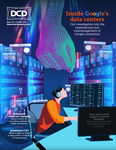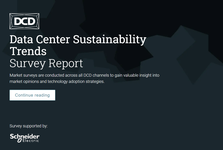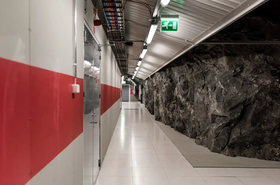Transforming every industry, every sector to meet the challenges of the climate crisis, to make them sustainable, is a mammoth challenge. It requires sector-wide coordination and collaboration, new business models that span across traditional industry boundaries and most importantly requires transparency.
Working beyond traditional silos
Addressing carbon emissions and creating climate-resilient businesses is the challenge of all businesses, no matter which industry. The majority of businesses, however, are not vertically integrated and are part of a much larger ecosystem of different actors supplying to and buying from each other. To address emissions & resource consumption across this ecosystem, every organization must think beyond its own boundaries and seek to collaborate with its customers and supply chain to truly address waste, emissions and resource usage.
Take the example of data center facilities. Many have already spent decades to optimize the efficiency of the parts they own: cooling systems, floor space utilization, power conversion and backup power generation. It’s in the interest of their business to be as efficient as possible. However, taking a systems-view, i.e. energy, data centers, IT hardware, virtualization and software applications, reveals a tremendous waste and inefficiency. The average data center may be very efficient, but the global average IT server utilization is at 10-15 percent.
In this example, we can see that collaboration outside of the traditional industries is necessary to address the systemic challenges. And we can go beyond. Can software replace the need for redundant physical infrastructure? Can server hardware lifetime be extended to make servers live forever? What can be the systemic solution to the waste of residual heat?
A collaboration platform
Collaboration across industries must be driven by an independent third-party which is guided by a set of shared goals of all organizations and holds everyone accountable to those goals. The Sustainable Digital Infrastructure Alliance (SDIA) has created the roadmap to define a set of shared goals across the entire digital value chain as well as metrics to monitor and measure impact.
We are often asked if we are an industry association. Legally, we have opted to organize ourselves as an association, with an important distinction. We do not represent the interests of an industry or sector, but only represent the interests of organizations which have committed themselves to our roadmap, independent of their industry or size.
Every organization within the Alliance commits to the same set of shared goals. This shared foundation creates the basis for a successful collaboration.
The Alliance ensures that all activities and solutions undertaken by its members fit within the framework of the roadmap, deliver a measurable impact to those shared goals, while also unlocking new business models for all the parties involved. The roadmap balances economics, environmental impact and society, creating a true guideline towards the creation of a sustainable digital economy.
Transparency enables concerted action
To collaborate effectively across industry boundaries, it is vital to have transparent information on the environmental & societal impact of the digital economy and the infrastructure that powers it. Organizations which participate in the Alliance, commit to making the necessary information available to other organizations in the Alliance, often within our steering groups.
This information makes it possible to fully understand and assess the sustainability challenges of the sector and design solutions which address them.
Transparency also enables us to measure the progress of the sector towards becoming not just carbon-neutral, but also on becoming resource-neutral, and addressing waste, while ensuring it remains competitive.
Is this different?
This model enables the Alliance to take on a role as a system-wide transformation organization, leading the change of the digital sector to become sustainable. We are committed to moving the digital sector forward, to drive positive change and to enable the digital sector to be leading the change. We want the digital economy to be the first sustainable economy, enabling economic prosperity without negative impact on environment and society.





